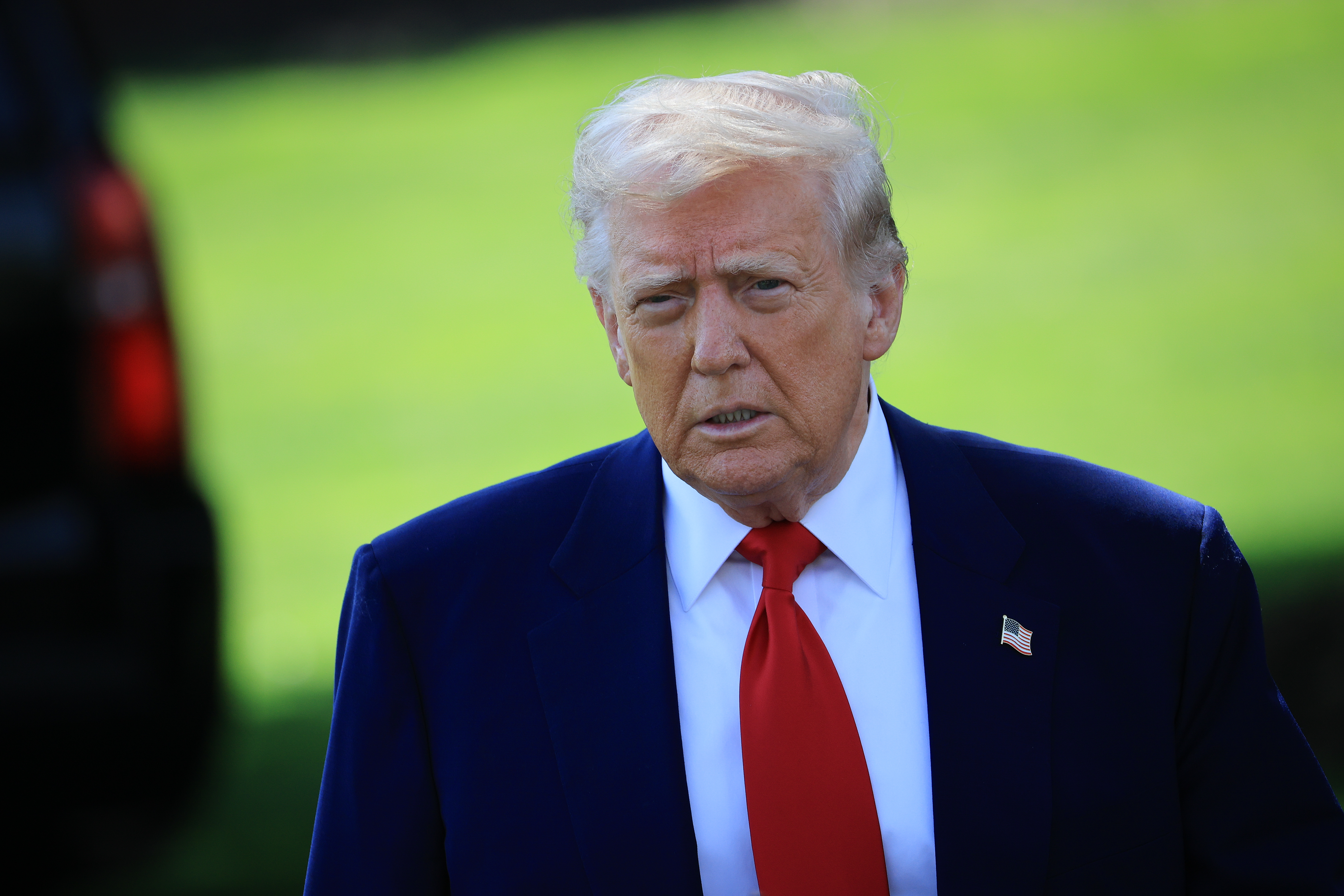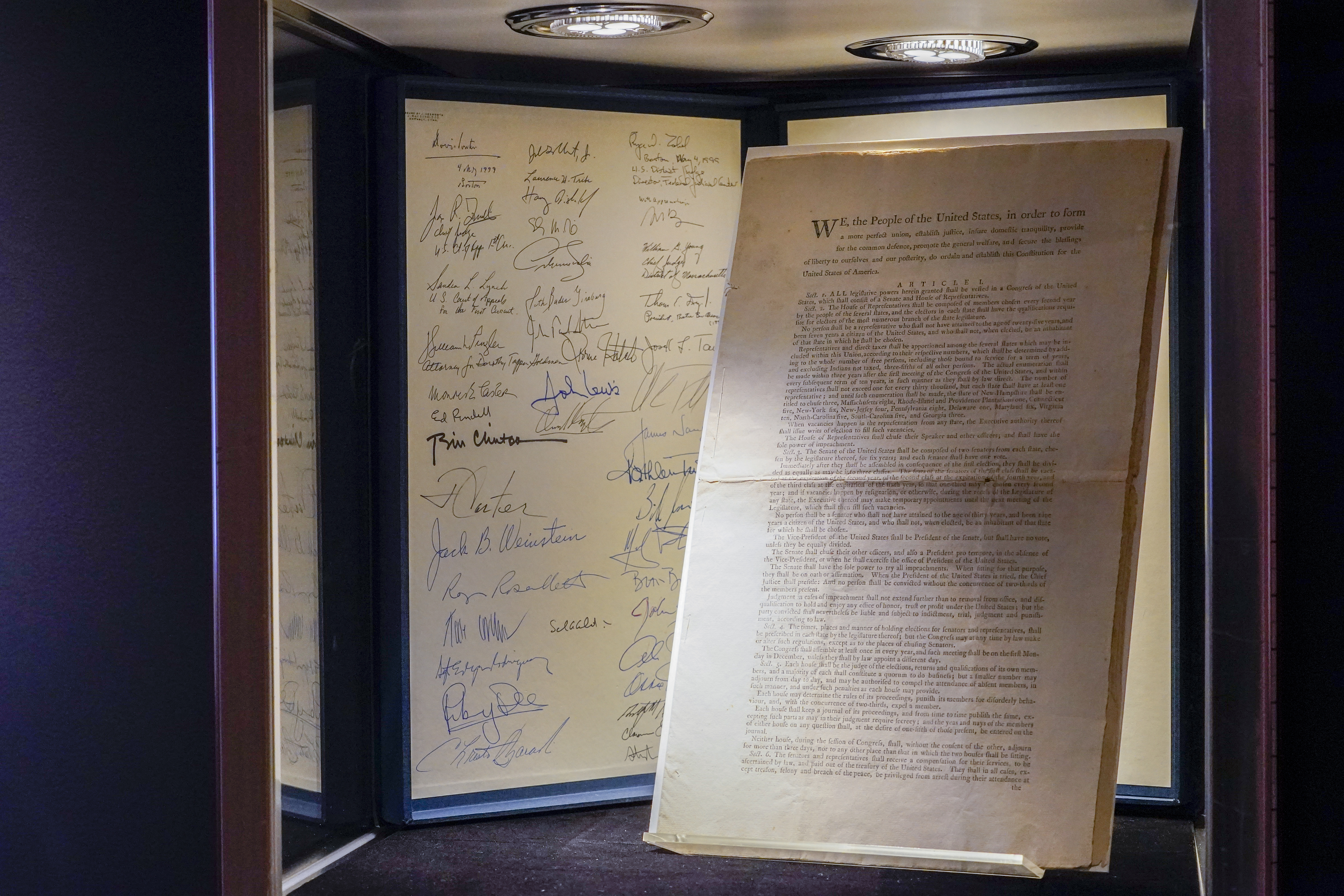Trump's 2028 Power Play: Freezing the Republican Field?
Trump's 2028 Tease: Freezing the Republican Field?
Introduction: The Unofficial Campaign That Isn't
Donald Trump. The name alone conjures images of rallies, red hats, and, well, unprecedented political theater. Now, even though the Constitution limits presidents to two terms, he's toying with the idea of a "Trump 2028" run. You might be scratching your head, and rightfully so. Is this just another Trumpian tactic, or is there something more to it? The merch is out, the hats are ready, but is America? This article will dive deep into the implications of Trump’s potential (and technically impossible) third term talk, and how it might be affecting the ambitious Republicans eyeing the 2028 presidential race.
The "Trump 2028" Merchandise: A Calculated Move?
Let's be real: the "Trump 2028" hats and shirts aren’t about a genuine run. They're about maintaining relevance and control. It's a classic Trump move – keeping his name in the headlines and the money flowing in. But what’s the strategy behind it? Is it simply ego, or is it a deliberate attempt to keep potential rivals at bay?
Subheading: Branding and Staying Power
The Trump brand is arguably one of the most recognizable in the world. By continuing to sell merchandise, even for a term he cannot legally serve, he’s reinforcing that brand and reminding his supporters (and potential donors) that he’s still a force to be reckoned with. Think of it as a constant, low-humming reminder of his presence.
The Constitutional Roadblock: A Minor Detail?
Okay, let's address the elephant in the room (pun intended). The 22nd Amendment clearly states a president can only serve two terms. So, why even entertain this 2028 fantasy? Well, as Newt Gingrich pointed out, Trump believes any Trump-centered noise is good. But is it *really* good for the Republican party in the long run?
Subheading: The Amendment Hurdle
Amending the Constitution is no walk in the park. It requires a two-thirds vote in both the House and Senate, and then ratification by three-quarters of the states. Do you see that happening anytime soon? Probably not. But the *idea* of it keeps Trump in the spotlight.
Newt Gingrich's Take: Starving the Opponents?
Gingrich’s explanation is insightful. The "Trump 2028" chatter effectively "starves his opponents" of attention. While potential contenders are busy figuring out what Trump is *really* up to, they're not focusing on building their own platforms and gaining traction.
Subheading: The Oxygen of Attention
In politics, attention is like oxygen. Trump’s dominance of the media landscape is legendary. By constantly creating a buzz, he deprives his rivals of the oxygen they need to thrive. It's a brutal, but effective, strategy.
The Freeze Effect: How 2028 Hopefuls Are Impacted
This is where things get interesting. The constant speculation about Trump's future plans (even the impossible ones) creates uncertainty. Potential 2028 candidates are likely hesitant to launch full-fledged campaigns, fearing they'll be overshadowed or even directly attacked by Trump. Are they holding back, waiting for a clear signal?
Subheading: Playing the Waiting Game
Imagine you're a rising star in the Republican party, eager to make your mark. But every time you start gaining momentum, Trump says something outrageous, and all eyes shift back to him. It's incredibly frustrating, and it forces you to play a waiting game. But how long can they wait?
The Potential Contenders: Who's in the Wings?
Let's take a quick look at some of the Republicans who might be considering a 2028 run:
- Ron DeSantis: The Florida Governor, once seen as Trump's heir apparent, has faced recent challenges.
- Mike Pence: Trump's former Vice President, a more traditional conservative.
- Nikki Haley: Former UN Ambassador, known for her foreign policy expertise.
- Mike Pompeo: Former Secretary of State, a staunch Trump loyalist (but now potentially positioning himself).
- Tim Scott: Senator from South Carolina, known for his optimistic message.
Are any of these candidates ready to challenge Trump's shadow?
Trump's Grip on the GOP: Still Strong?
Despite the controversies and legal challenges, Trump maintains a significant amount of influence within the Republican party. His endorsement still carries weight, and his supporters remain fiercely loyal. This influence is a major factor in the 2028 equation.
Subheading: The Power of Endorsement
In a crowded primary field, a Trump endorsement can be the difference between victory and defeat. Candidates know this, which is why they're often hesitant to directly criticize him, even when they disagree with his policies or statements.
The Long Game: What's Trump Really After?
Ultimately, it's impossible to know exactly what Trump is thinking. But one thing is clear: he thrives on attention and control. Whether he's genuinely interested in influencing the 2028 race or simply trying to stay relevant, his actions are having a real impact on the Republican party.
Subheading: Maintaining Relevance and Control
Trump's post-presidency has been defined by his efforts to remain a key player in American politics. By constantly engaging in political commentary and hinting at future campaigns, he's ensuring that he's never forgotten.
Beyond 2028: The Future of the Republican Party
The "Trump 2028" saga raises a larger question: what is the future of the Republican party? Will it continue to be defined by Trump and his brand of populism, or will a new generation of leaders emerge to take the party in a different direction?
Subheading: A Generational Shift?
Many Republicans believe that the party needs to move beyond Trump and embrace a more forward-looking vision. But can they do that while Trump still wields so much influence?
The Media's Role: Amplifying the Noise?
The media, of course, plays a role in amplifying Trump's pronouncements. Every time he says something controversial, it becomes headline news, further solidifying his position as a dominant force in American politics. Is the media unintentionally helping him maintain his grip on the GOP?
Subheading: The News Cycle and Trump
Trump understands how to manipulate the news cycle better than almost anyone. He knows that provocative statements and outrageous claims will generate coverage, keeping him in the public eye.
The Donor Dilemma: Where Will the Money Go?
One of the biggest challenges for potential 2028 candidates is fundraising. Donors may be hesitant to contribute to campaigns if they believe Trump will remain a factor in the party's future. After all, why back someone who might be perceived as going against the "king"?
Subheading: Following the Money
In politics, money talks. If Trump continues to command the loyalty of major donors, it will be difficult for other candidates to compete effectively.
The Third-Term Talk: A Dangerous Precedent?
Regardless of Trump's intentions, the casual discussion of a third term sets a dangerous precedent. It undermines the fundamental principles of American democracy and the peaceful transfer of power. Are we normalizing the idea of disregarding constitutional limits?
Subheading: Upholding Democratic Norms
The two-term limit is a cornerstone of American democracy. It prevents any one individual from accumulating too much power and ensures that the presidency remains accountable to the people.
The Specter of 2024: Still Unresolved
And let's not forget the shadow of the 2024 election. Trump's continued claims of election fraud cast a long shadow over the political landscape. These claims make it even more difficult for the Republican party to move forward and unite behind a new leader.
Subheading: Election Integrity Concerns
Addressing concerns about election integrity is crucial for restoring trust in the democratic process. But how can the Republican party move forward when its most prominent figure continues to deny the results of the 2020 election?
Conclusion: An Uncertain Future
Donald Trump's flirtation with a "Trump 2028" run, while technically impossible, serves as a powerful reminder of his continued influence within the Republican party. It freezes the potential 2028 field, deprives rivals of attention, and raises fundamental questions about the future of the GOP. Whether it's a strategic maneuver or a simple exercise in ego, the "Trump 2028" narrative highlights the challenges facing the Republican party as it seeks to define its identity in the post-Trump era. The road ahead for the Republican party in 2028 is undeniably murky, shaped by Trump's enduring influence, potential rivalries, and the need to address critical questions about the party's direction and values.
Frequently Asked Questions (FAQs)
Here are some frequently asked questions about Trump's potential "third term" and its impact on the 2028 Republican field:
-
Q: Is it legally possible for Donald Trump to run for president again in 2028?
A: No, the 22nd Amendment to the U.S. Constitution limits presidents to two terms in office. Trump has already served one term, and even if he won in 2024, he would still be constitutionally barred from seeking a third term in 2028.
-
Q: Why is Trump talking about a 2028 run if it's not possible?
A: Many analysts believe Trump's talk of a 2028 run is a strategic move to maintain his relevance, control the narrative within the Republican party, and keep potential rivals at bay. It allows him to stay in the headlines and continue fundraising.
-
Q: How is Trump's "2028" talk affecting potential Republican candidates for 2028?
A: It's creating uncertainty and a "freeze effect." Potential candidates may be hesitant to launch full-fledged campaigns for fear of being overshadowed or attacked by Trump. This uncertainty can hamper their fundraising and organization efforts.
-
Q: What are some of the key issues facing the Republican party as it looks towards 2028?
A: Key issues include defining the party's identity in the post-Trump era, addressing concerns about election integrity, attracting younger voters, and developing a clear policy platform that resonates with a broad range of Americans.
-
Q: Could the Constitution be amended to allow Trump to run again?
A: While technically possible, amending the Constitution is a very difficult process. It requires a two-thirds vote in both the House and Senate, and then ratification by three-quarters of the states. Given the current political climate, it's highly unlikely that such an amendment would be successful.


